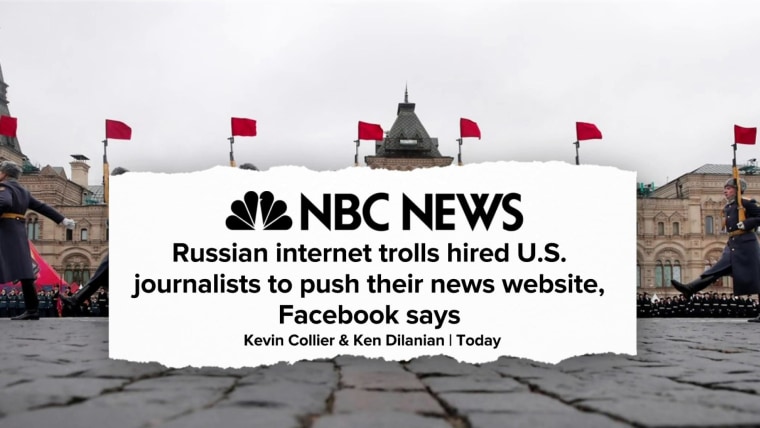Facebook will ban new political ads for the week leading up to Election Day, Nov. 3, and remove posts that try to suppress or discourage voting, the company’s CEO Mark Zuckerberg announced Thursday.
The measures also aim to prevent campaigns and their supporters from making premature claims of victory, a situation some Democrats have described as a doomsday scenario.
The announcement came as part of a series of steps to address concerns about how Facebook could be used to manipulate the election, and included a warning from Zuckerberg about potential unrest around the U.S. related to the election.
“The U.S. elections are just two months away, and with Covid-19 affecting communities across the country, I’m concerned about the challenges people could face when voting,” Zuckerberg wrote in a note to staff members. “I’m also worried that with our nation so divided and election results potentially taking days or even weeks to be finalized, there could be an increased risk of civil unrest across the country.”
Facebook’s move comes amid growing fears that President Donald Trump and his supporters will use social media to spread evidence-free claims of voter fraud and cast doubt on mail-in votes, which are likely to delay the final results for several days.
“This election is not going to be business as usual,” Zuckerberg wrote. “Since the pandemic means that many of us will be voting by mail, and since some states may still be counting valid ballots after election day, many experts are predicting that we may not have a final result on election night.”
“It’s important that we prepare for this possibility in advance and understand that there could be a period of intense claims and counter-claims as the final results are counted,” the Facebook chief added. “This could be a very heated period.”
The new steps also come after Facebook’s hesitance to take more aggressive action on misinformation spread by President Donald Trump has made the company and Zuckerberg the target of heated criticism, including from within the company.
While Facebook has declined to take more aggressive action, such as Twitter’s ban on all political ads, the company has made a series of changes in recent months including allowing users to opt out of political ads.
Thursday’s announcement of a ban on new political and issued ads in the week leading up to Election Day adds to that list, though it may not have the same impact as it would in previous elections. Voters are expected to cast many more votes by mail ahead of the election than in previous years.
“I generally believe the best antidote to bad speech is more speech, but in the final days of an election there may not be enough time to contest new claims,” Zuckerberg said, though he noted that advertisers will be able to continue running ads they started running before the final week and adjust the targeting for those ads.
Facebook will also put “authoritative” election information at the top of users’ Facebook and Instagram feeds and will remove any posts that contain misinformation about voting or try to use the coronavirus pandemic to discourage voting.
Finally, Facebook says that “if any candidate or campaign tries to declare victory before the final results are in,” it will “add a label to their posts directing people to the official results from Reuters.”
In recent months, Trump has repeatedly tried to cast doubt on the integrity of the election, questioning the legitimacy of mail-in votes. This week, he encouraged supporters in North Carolina to test the mail-in system by voting twice, which is illegal.
The New York Times reported Wednesday that the Democratic party is preparing “for a worst-case scenario in which Mr. Trump fights in courts and state legislatures after declaring a premature victory.”
Democrats are also concerned that Trump and his supporters will use social media platforms like Facebook, YouTube and Twitter to advance false claims.
For Facebook, the proactive posture on the 2020 election is an opportunity to make up for failures during the 2016 election, when foreign governments and groups used the platform to spread misinformation and sow discord.
This time around, however, Facebook is “increasingly seeing attempts to undermine the legitimacy of our elections from within our own borders,” Zuckerberg told staff.
“I believe our democracy is strong enough to withstand this challenge and deliver a free and fair election — even if it takes time for every vote to be counted,” he wrote. “We can do this. But it’s going to take a concerted effort by all of us — political parties and candidates, election authorities, the media and social networks, and ultimately voters as well — to live up to our responsibilities.”













